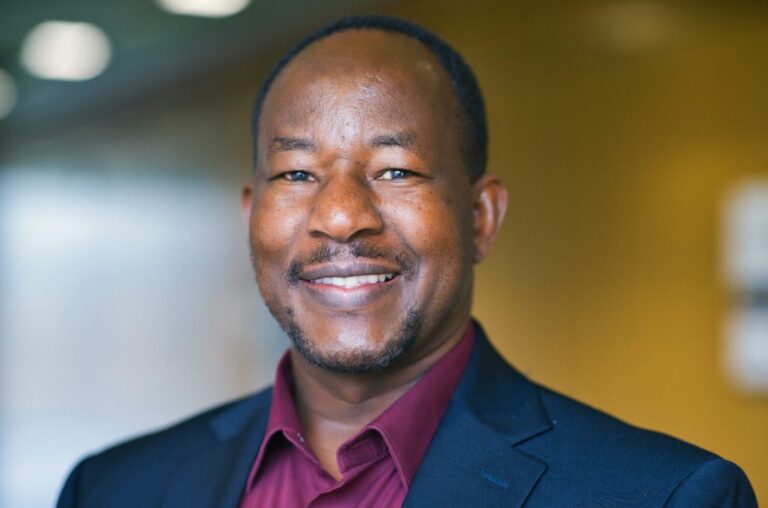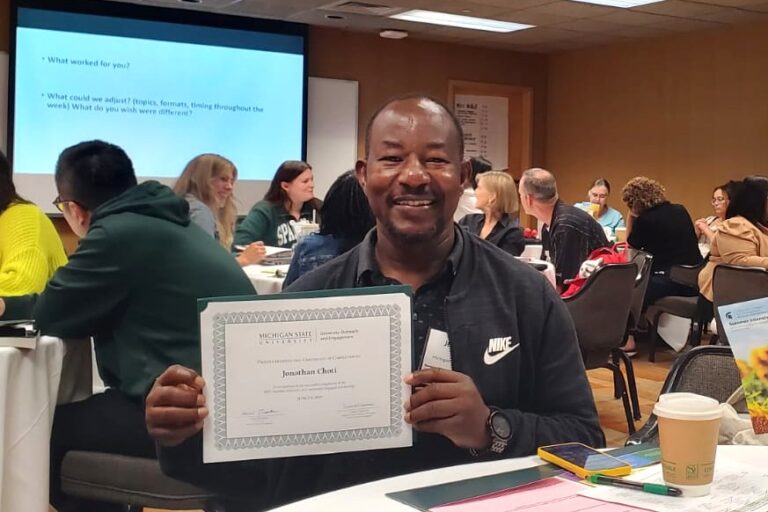A team of scholars from Michigan State University and the University of Wisconsin–Madison are being recognized for writing the most impactful article on teaching techniques published by a professional journal in 2024. For their outstanding efforts, they have received the 2025 Stephen A. Freeman Award for Best Published Article, an honor presented by the Northeast Conference on the Teaching of Foreign Languages (NECTFL).

The award-winning paper, “How important is studying languages for undergraduate students and why (not) study languages?” explores the value undergraduate students place on proficiency in languages other than English in terms of their personal interests, major(s), and career plans. The paper was published in “Foreign Language Annals,” the official refereed journal of the American Council on the Teaching of Foreign Languages (ACTFL), and was written by:
- Koen Van Gorp, Assistant Professor in the Applied Linguistics program and Less Commonly Taught Languages (LCTL) Coordinator in the Department of Linguistics, Languages, and Cultures at Michigan State University
- Emily Heidrich Uebel, Academic Specialist and Project Manager for the LCTL and Indigenous Languages Partnership at Michigan State University
- Felix Kronenberg, Director of the Center for Language Teaching Advancement (CeLTA) and Associate Professor of German in the Department of Linguistics, Languages, and Cultures at Michigan State University
- Dianna Murphy, Director of the Language Institute at the University of Wisconsin–Madison
The paper suggests that not only should institutions lead the way by emphasizing the importance of learning languages, but also that language programs need to listen to students’ voices and help them establish clear links between their academic majors, their future career and study plans, as well as their personal interests.
“It is gratifying to know that people recognize the work that is being done to better understand and advocate for world language education,” Heidrich Uebel said. “World languages are crucial avenues for promoting understanding, critical thinking, self-reflection, and communication skills.”
The topic is personal for Heidrich Uebel since her alma mater in Ohio recently eliminated its world language program. She expressed concern over the increasing fragility of such programs across the country.
“It’s vital that our field understands why students enroll in language classes,” Heidrich Uebel said, “and equally as important to understand why they do not – only then can we truly address some of the issues facing world language education today.”
Kronenberg credited the ongoing work being done by MSU’s Center for Language Teaching Advancement with programs such as the Master of Arts in Foreign Language Teaching (MAFLT) and the National Less Commonly Taught Languages Resource Center (NLRC) as central to addressing complex challenges in the field.
“It’s vital that our field understands why students enroll in language classes and equally as important to understand why they do not – only then can we truly address some of the issues facing world language education today.”
Emily Heidrich Uebel, Academic Specialist and Project Manager for the LCTL and Indigenous Languages Partnership
“This kind of progress can only happen through shared efforts and collective dedication,” Kronenberg said. “I value the opportunities we’ve had recently to connect with others through our workshops, presentations, and consulting. I look forward to continuing these collaborations to support meaningful and necessary work in the field of language education.”
Van Gorp emphasized the need to advocate for learning languages other than English and to build stronger partnerships between secondary and postsecondary institutions.
“Advocating for learning other languages than English becomes more and more important as languages and cultures provide new, eye-opening perspectives or windows on a rapidly changing world,” Van Gorp said. “Our study points to the importance of establishing partnerships between K-12 and higher education to create longer positive language learning trajectories helping students to reach advanced language proficiency levels, and to take into account learners’ identities and trajectories as they might impact their reasons for (not) studying languages.”
As winners of the Stephen A. Freeman Award for Best Published Article in 2024, Van Gorp, Heidrich Uebel, Kronenberg, and Murphy were recognized for their work at the Northeast Conference on the Teaching of Foreign Languages in New York City in February 2025.
The Stephen A. Freeman Award for Best Published Article has been presented each year since 1968 and is supported by a grant from Stephen A. Freeman of Middlebury College.
By Austin Curtis and Kim Popiolek


